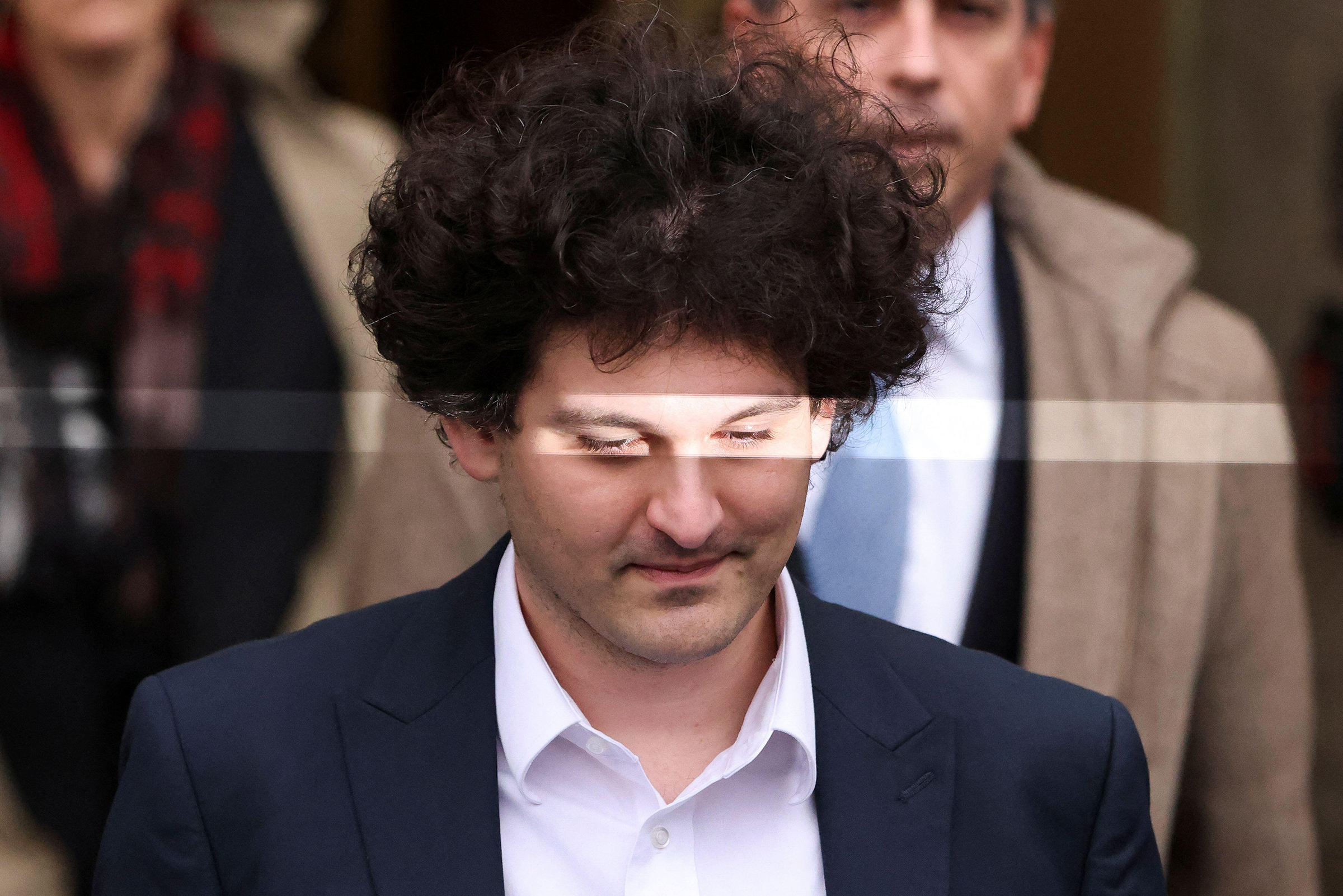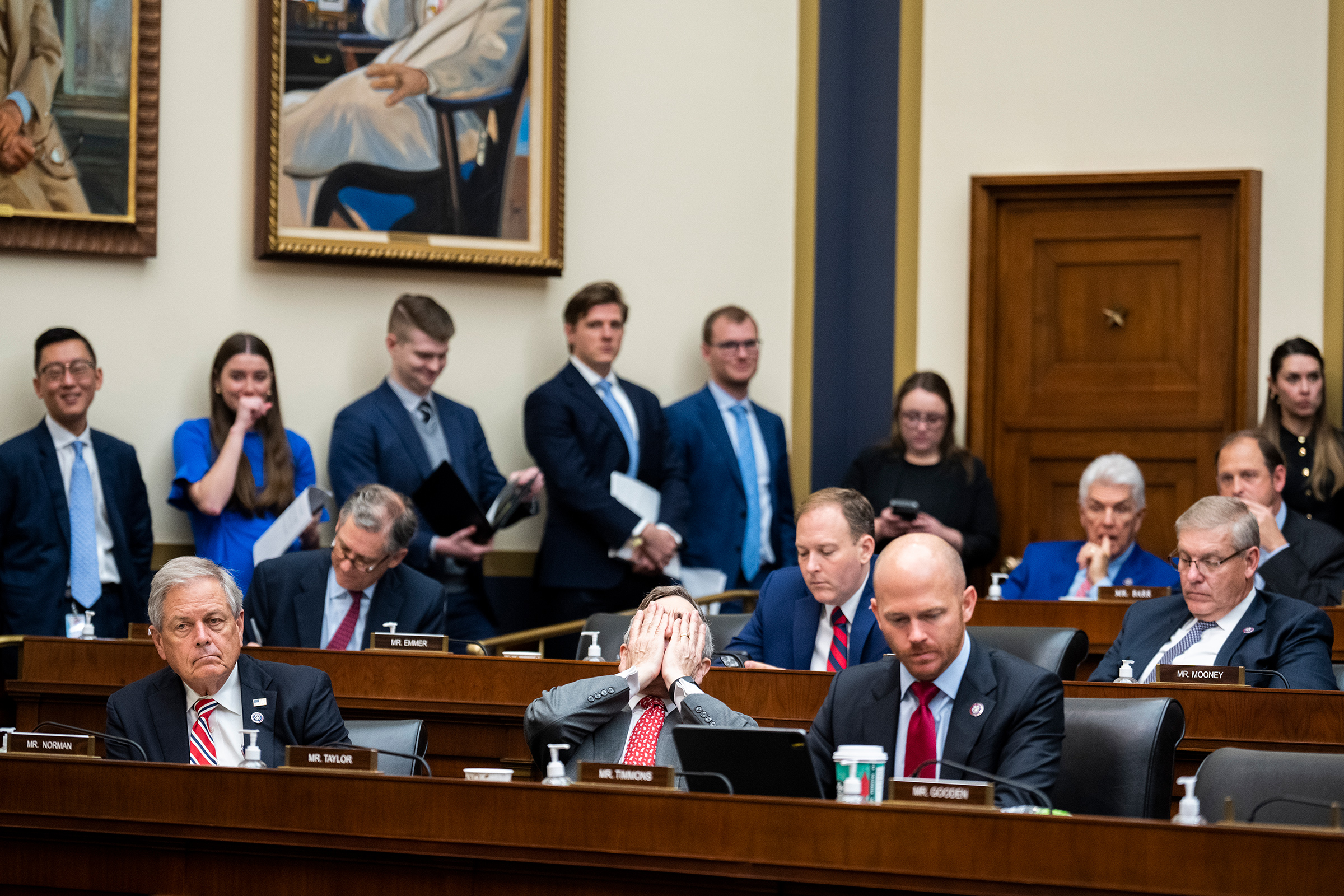Leaders of the Effective Altruism movement were repeatedly warned beginning in 2018 that Sam Bankman-Fried was unethical, duplicitous, and negligent in his role as CEO of Alameda Research, the crypto trading firm that went on to play a critical role in what federal prosecutors now say was among the biggest financial frauds in U.S. history. They apparently dismissed those warnings, sources say, before taking tens of millions of dollars from Bankman-Fried’s charitable fund for effective altruist causes.
When Alameda and Bankman-Fried’s cryptocurrency exchange FTX imploded in late 2022, these same effective altruist (EA) leaders professed outrage and ignorance. “I don’t know which emotion is stronger: my utter rage at Sam (and others?) for causing such harm to so many people, or my sadness and self-hatred for falling for this deception,” tweeted Will MacAskill, the Oxford moral philosopher and intellectual figurehead of EA, who co-founded the Centre for Effective Altruism.
Yet MacAskill had long been aware of concerns around Bankman-Fried. He was personally cautioned about Bankman-Fried by at least three different people in a series of conversations in 2018 and 2019, according to interviews with four people familiar with those discussions and emails reviewed by TIME.
He wasn’t alone. Multiple EA leaders knew about the red flags surrounding Bankman-Fried by 2019, according to a TIME investigation based on contemporaneous documents and interviews with seven people familiar with the matter. Among the EA brain trust personally notified about Bankman-Fried’s questionable behavior and business ethics were Nick Beckstead, a moral philosopher who went on to lead Bankman-Fried’s philanthropic arm, the FTX Future Fund, and Holden Karnofsky, co-CEO of OpenPhilanthropy, a nonprofit organization that makes grants supporting EA causes. Some of the warnings were serious: sources say that MacAskill and Beckstead were repeatedly told that Bankman-Fried was untrustworthy, had inappropriate sexual relationships with subordinates, refused to implement standard business practices, and had been caught lying during his first months running Alameda, a crypto firm that was seeded by EA investors, staffed by EAs, and dedicating to making money that could be donated to EA causes.
More from TIME
These repeated warnings to EA leaders, which have not been previously reported, represented a crossroads—for the budding crypto billionaire; for EA, a social movement dedicated to using reason to do the most good in the world; and for businesses and investors drawn into Bankman-Fried’s crypto empire, which imploded in Nov. 2022, vaporizing more than $8 billion in customer funds. Many of the emerging issues at Alameda that were reported to EA leaders beginning in 2018—including pervasive dishonesty, sloppy accounting, and rejection of corporate controls—presaged the scandal that unfolded at FTX four years later, according to sources who were granted anonymity to avoid professional retribution or becoming entangled in Bankman-Fried’s ongoing legal drama. “I was shocked at how much of what came out about FTX rhymed with the concerns we raised in the early days,” says one person who spoke directly with MacAskill and others about Bankman-Fried in 2018. “It was the same thing. All of the same problems.”
It’s not entirely clear how EA leaders reacted to the warnings. Sources familiar with the discussions told TIME that the concerns were downplayed, rationalized as typical startup squabbles, or dismissed as “he said-she said,” as two people put it. EA leaders declined or did not respond to multiple requests from TIME to explain their reaction to these warnings and what they did in response. But by the end of 2018, Bankman-Fried’s behavior was such an open secret that EA leaders were debating Bankman-Fried’s presence on the board of the Centre for Effective Altruism. In emails among senior EA leaders, which TIME reviewed, one person wrote that they had raised worries about Bankman-Fried’s trustworthiness directly with MacAskill, and that MacAskill had dismissed the concerns as “rumor.” In 2019, Bankman-Fried left CEA’s board.
MacAskill declined to answer a list of detailed questions from TIME for this story. “An independent investigation has been commissioned to look into these issues; I don’t want to front-run or undermine that process by discussing my own recollections publicly,” he wrote in an email. “I look forward to the results of the investigation and hope to be able to respond more fully after then.” Citing the same investigation, Beckstead also declined to answer detailed questions. Karnofsky did not respond to a list of questions from TIME. Through a lawyer, Bankman-Fried also declined to respond to a list of detailed written questions. The Centre for Effective Altruism (CEA) did not reply to multiple requests to explain why Bankman-Fried left the board in 2019. A spokesperson for Effective Ventures, the parent organization of CEA, cited the independent investigation, launched in Dec. 2022, and declined to comment while it was ongoing.
No one has alleged criminal behavior on the part of top EA figures. None of the people who raised concerns about Bankman-Fried to EA leaders in 2018 and 2019 say they warned about specific criminal activity, nor did they foresee the size and scope of the alleged fraud at the heart of the FTX collapse. In charging documents, federal prosecutors identify the start of Bankman-Fried’s alleged fraud as 2019.
Why did the braintrust of a social movement dedicated to virtuous impact apparently fail to heed repeated warnings about one of their own, while continuing to promote him publicly as a force for good? For a group of philosophers who had spent their lives contemplating moral tradeoffs and weighing existential risks, the warnings about Bankman-Fried may have presented a choice between embracing a big donor with questionable ethics or foregoing millions of dollars they believed could boost their nascent movement to help save the future of humanity. In a span of less than nine months in 2022, Bankman-Fried’s FTX Future Fund—helmed by Beckstead—gave more than $160 million to effective altruist causes, including more than $33 million to organizations connected to MacAskill. “If [Bankman-Fried] wasn’t super wealthy, nobody would have given him another chance,” says one person who worked closely with MacAskill at an EA organization. “It’s greed for access to a bunch of money, but with a philosopher twist.”

Sam Bankman-Fried and Will MacAskill weren’t just philosophical allies. They were old friends. The two met in 2013, when Bankman-Fried was still an undergrad at MIT. MacAskill convinced the young utilitarian math geek that he could maximize his impact by taking a high-paying finance job and giving his money away. Effective Altruists call this “earning to give.”
Alameda was “earning to give” on crypto steroids. Launched in the fall of 2017 by Bankman-Fried, who had most recently worked at a quantitative trading firm called Jane Street Capital, and Tara Mac Aulay, who had been the CEO of the Centre for Effective Altruism, it was explicitly an EA project from the start, linked to the relatively new idea that more money could lead to more impact for effective altruist causes. “Almost everyone who came on in those early days was an EA. They were there for EA reasons,” says Naia Bouscal, a former software engineer at Alameda. “That was the pitch we gave people: this is an EA thing.”
Mac Aulay and Bankman-Fried originally planned to donate 50% of company profits to EA causes, and many of the executives also planned to donate most of their salaries. The initial funding for Alameda came from two influential EA donors: Luke Ding, a former currency trader who invested $6 million, and Jaan Tallinn, who loaned the firm $110 million worth of Ether, according to Semafor. Sources say that without the help of EA donors, it would have taken months to get anywhere near that amount of money, and never on such favorable terms.
But within months, the good karma of the venture dissipated in a series of internal clashes, many details of which have not been previously reported. Some of the issues were personal. Bankman-Fried could be “dictatorial,” according to one former colleague. Three former Alameda employees told TIME he had inappropriate romantic relationships with his subordinates. Early Alameda executives also believed he had reneged on an equity arrangement that would have left Bankman-Fried with 40% control of the firm, according to a document reviewed by TIME. Instead, according to two people with knowledge of the situation, he had registered himself as sole owner of Alameda.
Bankman-Fried’s approach to managing the business was an even bigger problem. “As we started to implement some of the really basic, standard corporate controls, we found more and more cases where I thought Sam had taken dangerous and egregious shortcuts,” says one person who later raised concerns about Bankman-Fried to EA leaders. “And in many cases [he] had concealed the fact that he had done that.”
“We didn’t know how much money we actually had. We didn’t have a clear accounting record of all the trades we’d done,” Bouscal says. “Sam continued pushing us more and more in this direction of doing a huge number of trades, a huge number of transfers, and we couldn’t account for that.” At the same time, she adds, Bankman-Fried was spending enormous amounts of money because “he didn’t have a distinction between firm capital and trading capital. It was all one pool.”
Colleagues concluded Bankman-Fried had to go, and prepared an attempt to push him out. In early April 2018, four Alameda executives summoned Bankman-Fried to a conference room in the firm’s new Berkeley, Calif., offices for what one participant describes as an “intervention-style confrontation.” In a planning document prepared for that confrontation and reviewed exclusively by TIME, they accuse him of “gross negligence,” “willful and wanton conduct that is reasonably considered to cause injury,” and “willful and knowing violations of agreements or obligations, particularly with regards to creditors”—all language that echoes the U.S. criminal code.
The document, which has not been previously reported, accuses Bankman-Fried of dismissing calls for stronger accounting and inflating the expected value of adding new exchanges, and said a majority of employees thought he was “negligent” and “unethical.” It also alleges he was “misreporting numbers” and “failing to update investors on poor performance.” The team “didn’t trust Sam to be in investor meetings alone,” colleagues wrote. “Sam will lie, and distort the truth for his own gain,” the document says.
The meeting was short. Mac Aulay and the management team offered Bankman-Fried a buyout in exchange for his resignation as CEO, and threatened to quit if he refused. Bankman-Fried sat there silently, according to two people present, then got up and left. The next day, he came back with his answer: he would not step down. Instead, the other four members of the management team resigned, along with roughly half of Alameda’s 30 employees. Mac Aulay, an Australian citizen, was forced to leave the country shortly afterward, because her work visa was tied to Alameda.
In the weeks leading up to that April 2018 confrontation with Bankman-Fried and in the months that followed, Mac Aulay and others warned MacAskill, Beckstead and Karnofsky about her co-founder’s alleged duplicity and unscrupulous business ethics, according to four people with knowledge of those discussions. Mac Aulay specifically flagged her concerns about Bankman-Fried’s honesty and trustworthiness, his maneuvering to control 100% of the company despite promising otherwise, his pattern of unethical behavior, and his inappropriate relationships with subordinates, sources say.
Bouscal recalled speaking to Mac Aulay immediately after one of Mac Aulay’s conversations with MacAskill in late 2018. “Will basically took Sam’s side,” said Bouscal, who recalls waiting with Mac Aulay in the Stockholm airport while she was on the phone. (Bouscal and Mac Aulay had once dated; though no longer romantically involved, they remain close friends.) “Will basically threatened Tara,” Bouscal recalls. “I remember my impression being that Will was taking a pretty hostile stance here and that he was just believing Sam’s side of the story, which made no sense to me.”
“He was treating it like a ‘he said-she said,’ even though every other long-time EA involved had left because of the same concerns,” Bouscal adds.
Another early Alameda employee, who witnessed Bankman-Fried’s behavior but didn’t speak up, says that Bankman-Fried’s clout within EA, bolstered by his close relationship to MacAskill, discouraged people from speaking out against him, particularly if they wanted to work in EA organizations in the future.
But one of the people who did warn others about Bankman-Fried says that he openly wielded this power when challenged. “It was like, ‘I could destroy you,’” this person says. “Will and Holden would believe me over you. No one is going to believe you.”

The blowup at Alameda rippled through the EA movement. The mutiny—and its causes—would have been hard for the movement’s leaders to miss, according to three people at EA organizations who heard about the implosion and the allegations that surrounded it. “It’s very implausible that a bunch of the leaders didn’t know quite a lot of details about what happened internally, because it was such a major thing in the EA community,” says the person who worked with MacAskill at an EA organization.
Mac Aulay, who had perhaps raised the loudest concerns about Bankman-Fried, was distrusted by some EA leaders because of internal politics during her time at the Centre for Effective Altruism, according to a senior member of the EA community who heard about the warnings after the fact. Still, this person says, “both Will and Nick had significant amounts of evidence that Sam was not ethically good. That puts you in really murky territory: what are you supposed to do with that information?”
In the aftermath, Mac Aulay receded from the movement. Bankman-Fried moved to Hong Kong and rebuilt the firm with a small cohort of close allies, including Caroline Ellison, who later became Alameda’s CEO. In the spring of 2019, while still running Alameda, Bankman-Fried started FTX. The crossroads had come and gone.
Sometime that year, the Centre for Effective Altruism did an internal investigation relating to CEA and Alameda, according to one person who was contacted during the investigation, and who said it was was conducted in part by MacAskill. Bankman-Fried left the board of the organization in 2019. The Centre for Effective Altruism did not respond to repeated requests from TIME to discuss the circumstances leading to his departure; MacAskill and others declined multiple opportunities to answer questions about those events.
Even after Bankman-Fried left the board of CEA, he retained MacAskill’s support, both in public and private. In a 2022 interview on the 80,000 Hours podcast, MacAskill describes himself as “remarkably aligned with Sam,” and said the FTX Future Fund could be a “an enormous inflection point for EA.” FTX advertisements used the language of effective altruism. “I’m on crypto because I want to make the biggest global impact for good,” read one FTX ad, which featured a photo of Bankman-Fried.
When Elon Musk was buying Twitter in 2022, MacAskill texted Musk to offer to introduce him to Bankman-Fried, according to text messages released during a lawsuit surrounding Musk’s acquisition of Twitter. MacAskill referred to the FTX founder as “my collaborator,” who had expressed interest in buying Twitter “and making it better for the world.”
“You vouch for him?” Musk asked MacAskill.
“Very much so!” MacAskill replied. “Very dedicated to making the long-term future of humanity go well.”
Read More: Want To Do More Good? This Movement Might Have the Answer.
By that time, EA’s bet on Bankman-Fried seemed to be paying off handsomely. In 2022, Bankman-Fried started a charitable arm of FTX to fund EA causes, led by Beckstead, one of the philosopher leaders of EA who had been warned in 2018 by Bankman-Fried’s colleagues. In its brief existence, the Fund gave roughly $33 million to organizations connected to MacAskill: $13.9 million to CEA; $17.9 million to Longview Philanthropy, where he sits on the advisory board; and $1.2 million to the Global Priorities Institute, where he is advisory board chair.
In the meantime, Bankman-Fried was at the helm of what prosecutors have cast as one of the biggest financial scandals in American history. “Never in my career have I seen such an utter failure of corporate controls at every level of an organization,” John Ray, who was brought in to manage FTX’s bankruptcy after the company imploded, testified to Congress. The SEC complaint alleges that there “was no meaningful distinction between FTX customer funds and Alameda’s own funds,” and that Bankman-Fried used Alameda as his “personal piggy bank.” Federal prosecutors allege that from 2019 onwards, Bankman-Fried spent billions of dollars of customer money to finance Alameda trading, Bankman-Fried’s investments, and bankroll straw political donations. Among other things, prosecutors say, the money was used to “make charitable contributions.” Bankman-Fried is facing 12 criminal charges; he has pleaded not guilty.

None of the early Alameda employees who witnessed Bankman-Fried’s behavior years earlier say they anticipated this level of alleged criminal fraud. There was no “smoking gun,” as one put it, that revealed specific examples of lawbreaking. Even if they knew Bankman-Fried was dishonest and unethical, they say, none of them could have foreseen a fraud of this scope.
After FTX collapsed, MacAskill conveyed his dismay in a series of tweets expressing surprise. “I cannot in words convey how strongly I condemn what they did,” MacAskill tweeted. “I had put my trust in Sam, and if he lied and misused customer funds he betrayed me, just as he betrayed his customers, his employees, his investors, & the communities he was a part of.”
It was quite a turnaround for the visionary leader of the futurist movement. Just months earlier, in Aug. 2022, MacAskill published his second book, What We Owe the Future, about the moral duty to confront existential risks to humanity. “History is littered with people doing bad things while believing they were doing good,” MacAskill writes in the book. “We should do our utmost to avoid being one of them.” To celebrate its publication, the moral philosopher invited a group of luminaries to a dinner at Eleven Madison Park, the ultra-luxurious vegan restaurant where the tasting menu runs $438 per person with tip, before tax. The event, MacAskill wrote in an email invitation, “is hosted by my friend, Sam Bankman-Fried.”
More Must-Reads From TIME
- The 100 Most Influential People of 2024
- How Far Trump Would Go
- Why Maternity Care Is Underpaid
- Scenes From Pro-Palestinian Encampments Across U.S. Universities
- Saving Seconds Is Better Than Hours
- Why Your Breakfast Should Start with a Vegetable
- Welcome to the Golden Age of Ryan Gosling
- Want Weekly Recs on What to Watch, Read, and More? Sign Up for Worth Your Time
Write to Charlotte Alter at charlotte.alter@time.com
